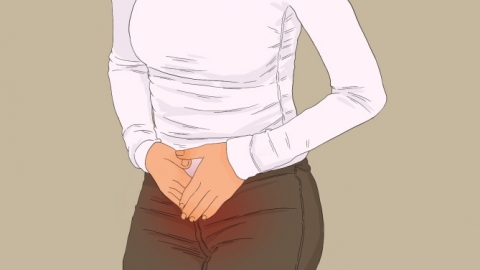What should I do if there is yellow discharge with an unpleasant odor?
Yellow discharge with an unusual odor may be caused by physiological changes in vaginal discharge, poor hygiene, trichomoniasis, bacterial vaginosis, or vulvovaginal candidiasis. Symptoms can be improved through proper cleaning and care, lifestyle adjustments, and medical treatment. If symptoms persist or are accompanied by itching or burning pain, prompt medical attention is recommended.
1. Physiological changes in vaginal discharge: Fluctuations in hormone levels can increase vaginal discharge. If not cleaned promptly, the secretions may oxidize and turn light yellow, accompanied by a mild odor. It is recommended to wash the external genital area daily with warm water, keep the area dry, change underwear frequently, and avoid using irritating cleansers.
2. Poor hygiene: Failure to maintain proper external genital hygiene over time allows sweat and secretions to accumulate, promoting bacterial growth, which leads to yellowish discharge and stronger odor. It is advised to develop a daily cleaning routine, wear cotton breathable underwear, and disinfect used underwear by scalding with boiling water and sun-drying.

3. Trichomoniasis: Infection with *Trichomonas vaginalis* causes inflammation, resulting in yellow-green frothy vaginal discharge with a strong odor, along with external genital itching. Treatment under medical guidance may include medications such as metronidazole suppositories, tinidazole tablets, or potassium permanganate solution to relieve symptoms.
4. Bacterial vaginosis: Imbalance of normal vaginal flora leads to overgrowth of anaerobic bacteria. Discharge appears gray-white, uniform in consistency, with a fishy odor and mild itching. Under medical supervision, treatments may include metronidazole gel, clindamycin ointment, or tinidazole capsules to alleviate symptoms.
5. Vulvovaginal candidiasis: When immunity decreases, *Candida* species proliferate excessively, causing discharge that resembles cottage cheese or yellow paste, often with an odor and intense external genital itching. Follow medical advice to use antifungal medications such as clotrimazole suppositories, miconazole suppositories, or fluconazole dispersible tablets for symptom relief.
Maintain cleanliness and dryness of the external genital area, wear loose-fitting, breathable cotton underwear, follow a light diet avoiding spicy and irritating foods, avoid unhygienic sexual practices, maintain regular sleep patterns, boost immunity, and reduce the occurrence of discomfort symptoms.




